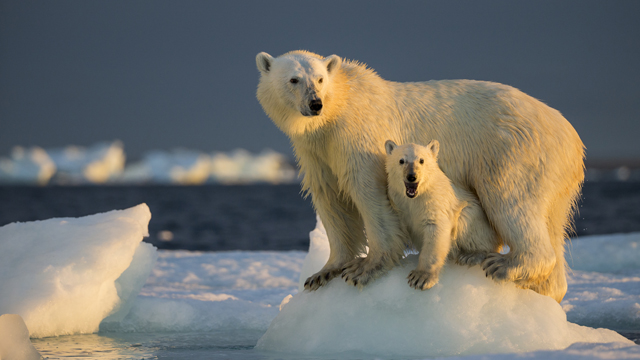Addressing Earth’s Largest Issue: Climate Change
Polar bear stands with it’s child on melted piece of ice. Territory loss comes from increasing ocean temperatures.
With increasing amounts of human-made emissions and other harmful waste being put into the environment, Earth is slowly dying unless significant changes are made.
Climate change has caused the Earth’s average surface temperature to rise 2.05 degrees since the late nineteenth century. This may not seem like much, but just the slightest imbalances can make an astronomical difference.
Between 1993 and 2019, Antarctica lost 146 billion tons of ice per year which explains why sea levels have risen eight inches in the last century alone.
Overlooking climate change can be easy because it does not happen overnight. Humans rely on harmful fossil fuels to complete everyday tasks. Things like driving a car or heating a home would, for the most part, not be possible without them.
Dr. Abigail McHugh-Grifa, the executive director for Climate Solutions Accelerator of the Genesee-Finger Lakes Region, said, “virtually every aspect of our daily lives impacts or is impacted by climate change.”
Evidence of climate change in Rochester can be seen by our mild winters and hotter summers.
“Our biggest snowfall not happening until the last week of January is an obvious change from historical patterns” said Dr. McHugh-Grifa.
Combatting this issue is more complicated than just saving water or recycling. While it is great to regulate how much waste you put into the earth, Dr. McHugh-Grifa believes that the best way to fight this issue is from a systematic approach.
“Rather than just thinking about what are the changes you can make in your daily life, let’s think about how we can make climate solutions more accessible and more affordable for all,” said Dr. McHugh-Grifa.
It will be hard to stop or reverse the damages humans have caused, but it is essential to act now before it is too late.
Even though it might not affect everyone in their own life, overlooking this puts future generations and the future of our planet at risk






